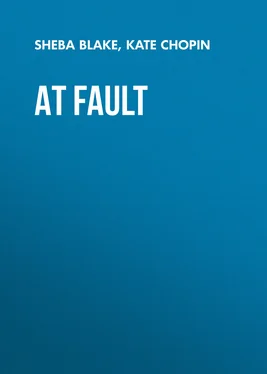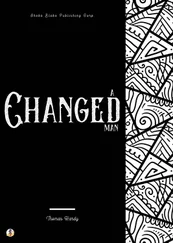Sheba Blake - At Fault
Здесь есть возможность читать онлайн «Sheba Blake - At Fault» — ознакомительный отрывок электронной книги совершенно бесплатно, а после прочтения отрывка купить полную версию. В некоторых случаях можно слушать аудио, скачать через торрент в формате fb2 и присутствует краткое содержание. Жанр: unrecognised, на английском языке. Описание произведения, (предисловие) а так же отзывы посетителей доступны на портале библиотеки ЛибКат.
- Название:At Fault
- Автор:
- Жанр:
- Год:неизвестен
- ISBN:нет данных
- Рейтинг книги:4 / 5. Голосов: 1
-
Избранное:Добавить в избранное
- Отзывы:
-
Ваша оценка:
- 80
- 1
- 2
- 3
- 4
- 5
At Fault: краткое содержание, описание и аннотация
Предлагаем к чтению аннотацию, описание, краткое содержание или предисловие (зависит от того, что написал сам автор книги «At Fault»). Если вы не нашли необходимую информацию о книге — напишите в комментариях, мы постараемся отыскать её.
At Fault — читать онлайн ознакомительный отрывок
Ниже представлен текст книги, разбитый по страницам. Система сохранения места последней прочитанной страницы, позволяет с удобством читать онлайн бесплатно книгу «At Fault», без необходимости каждый раз заново искать на чём Вы остановились. Поставьте закладку, и сможете в любой момент перейти на страницу, на которой закончили чтение.
Интервал:
Закладка:
“Will he follow us?” she asked, mildly agitated.
“Oh no; he’s glad ‘nough to git out o’ the way. You betta put down yo’ veil,” he added a moment later.
Before she could ask a reason—for it was not her fashion to obey at word of command—the air was filled with the doleful hum of a gray swarm of mosquitoes, which attacked them fiercely.
“You didn’t tell me the bayou was the refuge of such savage creatures,” she said, fastening her veil closely about face and neck, but not before she had felt the sharpness of their angry sting.
“I reckoned you’d ‘a knowed all about it: seems like you know everything.” After a short interval he added, “you betta take yo’ veil off.”
She was amused at Grégoire’s authoritative tone and she said to him laughing, yet obeying his suggestion, which carried a note of command: “you shall tell me always, why I should do things.”
“All right,” he replied; “because they ain’t any mo’ mosquitoes; because I want you to see somethin’ worth seein’ afta while; and because I like to look at you,” which he was doing, with the innocent boldness of a forward child. “Ain’t that ‘nough reasons?”
“More than enough,” she replied shortly.
The rank and clustering vegetation had become denser as they went on, forming an impenetrable tangle on either side, and pressing so closely above that they often needed to lower their heads to avoid the blow of some drooping branch. Then a sudden and unlooked for turn in the bayou carried them out upon the far-spreading waters of the lake, with the broad canopy of the open sky above them.
“Oh,” cried Melicent, in surprise. Her exclamation was like a sigh of relief which comes at the removal of some pressure from body or brain.
The wildness of the scene caught upon her erratic fancy, speeding it for a quick moment into the realms of romance. She was an Indian maiden of the far past, fleeing and seeking with her dusky lover some wild and solitary retreat on the borders of this lake, which offered them no seeming foot-hold save such as they would hew themselves with axe or tomahawk. Here and there, a grim cypress lifted its head above the water, and spread wide its moss covered arms inviting refuge to the great black-winged buzzards that circled over and about it in mid-air. Nameless voices—weird sounds that awake in a Southern forest at twilight’s approach,—were crying a sinister welcome to the settling gloom.
“This is a place thet can make a man sad, I tell you,” said Grégoire, resting his oars, and wiping the moisture from his forehead. “I wouldn’t want to be yere alone, not fur any money.”
“It is an awful place,” replied Melicent with a little appreciative shudder; adding “do you consider me a bodily protection?” and feebly smiling into his face.
“Oh; I ain’t ‘fraid o’ any thing I can see an on’erstan’. I can han’le mos’ any thing thet’s got a body. But they do tell some mighty queer tales ‘bout this lake an’ the pine hills yonda.”
“Queer—how?”
“W’y, ole McFarlane’s buried up there on the hill; an’ they’s folks ‘round yere says he walks about o’ nights; can’t res’ in his grave fur the niggas he’s killed.”
“Gracious! and who was old McFarlane?”
“The meanest w’ite man thet ever lived, seems like. Used to own this place long befo’ the Lafirmes got it. They say he’s the person that Mrs. W’at’s her name wrote about in Uncle Tom’s Cabin.”
“Legree? I wonder if it could be true?” Melicent asked with interest.
“Thet’s w’at they all say: ask any body.”
“You’ll take me to his grave, won’t you Grégoire,” she entreated.
“Well, not this evenin’—I reckon not. It’ll have to be broad day, an’ the sun shinin’ mighty bright w’en I take you to ole McFarlane’s grave.”
They had retraced their course and again entered the bayou, from which the light had now nearly vanished, making it needful that they watch carefully to escape the hewn logs that floated in numbers upon the water.
“I didn’t suppose you were ever sad, Grégoire,” Melicent said gently.
“Oh my! yes;” with frank acknowledgment. “You ain’t ever seen me w’en I was real lonesome. ‘Tain’t so bad sence you come. But times w’en I git to thinkin’ ‘bout home, I’m boun’ to cry—seems like I can’t he’p it.”
“Why did you ever leave home?” she asked sympathetically.
“You see w’en father died, fo’ year ago, mother she went back to France, t’her folks there; she never could stan’ this country—an’ lef’ us boys to manage the place. Hec, he took charge the firs’ year an’ run it in debt. Placide an’ me did’n’ have no betta luck the naxt year. Then the creditors come up from New Orleans an’ took holt. That’s the time I packed my duds an’ lef’.”
“And you came here?”
“No, not at firs’. You see the Santien boys had a putty hard name in the country. Aunt Thérèse, she’d fallen out with father years ago ‘bout the way, she said, he was bringin’ us up. Father, he wasn’t the man to take nothin’ from nobody. Never ‘lowed any of us to come down yere. I was in Texas, goin’ to the devil I reckon, w’en she sent for me, an’ yere I am.”
“And here you ought to stay, Grégoire.”
“Oh, they ain’t no betta woman in the worl’ then Aunt Thérèse, w’en you do like she wants. See ‘em yonda waitin’ fur us? Reckon they thought we was drowned.”
Four
A Small Interruption

When Melicent came to visit her brother, Mrs. Lafirme persuaded him to abandon his uncomfortable quarters at the mill and take up his residence in the cottage, which stood just beyond the lawn of the big house. This cottage had been furnished de pied en cap many years before, in readiness against an excess of visitors, which in days gone by was not of infrequent occurrence at Place-du-Bois. It was Melicent’s delighted intention to keep house here. And she foresaw no obstacle in the way of procuring the needed domestic aid in a place which was clearly swarming with idle women and children.
“Got a cook yet, Mel?” was Hosmer’s daily enquiry on returning home, to which Melicent was as often forced to admit that she had no cook, but was not without abundant hope of procuring one.
Betsy’s Aunt Cynthy had promised with a sincerity which admitted not of doubt, that “de Lord willin’ " she would “be on han’ Monday, time to make de mornin’ coffee.” Which assurance had afforded Melicent a Sunday free of disturbing doubts concerning the future of her undertaking. But who may know what the morrow will bring forth? Cynthy had been “tuck sick in de night.” So ran the statement of the wee pickaninny who appeared at Melicent’s gate many hours later than morning coffee time: delivering his message in a high voice of complaint, and disappearing like a vision without further word.
Uncle Hiram, then called to the breach, had staked his patriarchal honor on the appearance of his niece Suze on Tuesday. Melicent and Thérèse meeting Suze some days later in a field path, asked the cause of her bad faith. The girl showed them all the white teeth which nature had lavished on her, saying with the best natured laugh in the world: “I don’ know how come I didn’ git dere Chewsday like I promise.”
If the ladies were not disposed to consider that an all-sufficient reason, so much the worse, for Suze had no other to offer.
From Mose’s wife, Minervy, better things might have been expected. But after a solemn engagement to take charge of Melicent’s kitchen on Wednesday, the dusky matron suddenly awoke to the need of “holpin’ Mose hoe out dat co’n in the stiff lan.”
Читать дальшеИнтервал:
Закладка:
Похожие книги на «At Fault»
Представляем Вашему вниманию похожие книги на «At Fault» списком для выбора. Мы отобрали схожую по названию и смыслу литературу в надежде предоставить читателям больше вариантов отыскать новые, интересные, ещё непрочитанные произведения.
Обсуждение, отзывы о книге «At Fault» и просто собственные мнения читателей. Оставьте ваши комментарии, напишите, что Вы думаете о произведении, его смысле или главных героях. Укажите что конкретно понравилось, а что нет, и почему Вы так считаете.












